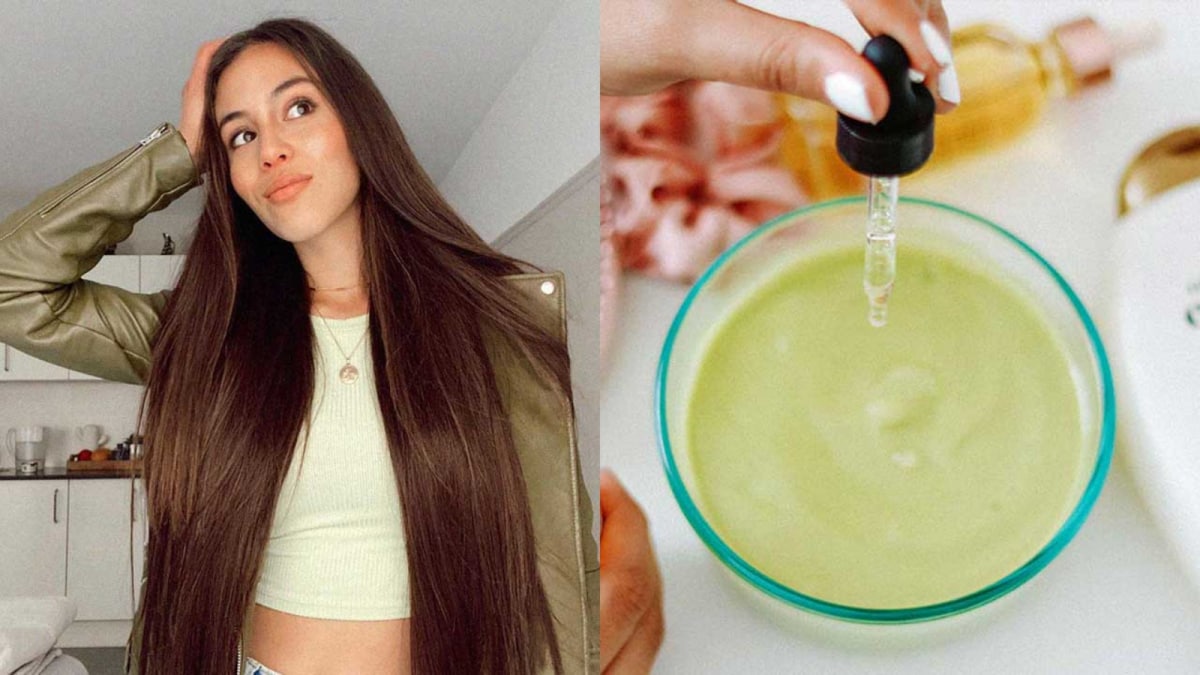Last Updated:
Viral hair hacks may promise instant shine, but dermatologists warn they can cause lasting scalp damage and hair loss

Not every viral hair hack is harmless—protect your scalp, trust science, not trends.
A slick bun, a miracle mask, overnight curls with socks – TikTok and Instagram Reels are overflowing with “quick fixes” for shiny, voluminous, or fast-growing hair. “But behind the glossy videos, I see the real aftermath in my clinic: thinning hairlines, irritated scalps, and brittle strands snapping like twigs. The truth is simple not every hack is harmless,” says Dr Gaurang Krishna, MD, Co-founder & Director, MedLinks Trichology.
The Slick-Back Bun: Neat Look, Lasting Damage
The “clean girl bun” may look polished, but constant tugging can cause traction alopecia. “I’ve treated women with bald patches near the temples sometimes reversible, sometimes permanent. If you must tie your hair back, opt for scrunchies or loose clips instead of tight elastics,” adds Dr Krishna.
Protein Masks: From Repair to Breakage
Protein is essential, but overload makes hair brittle. Dr Krishna believes patients lose chunks of hair after following DIY mixes with egg whites, rice water, and protein conditioners. Balance matters: hair also needs hydration and moisture, not just protein.
DIY Keratin Kits: Shiny Now, Trouble Later
At-home keratin kits promise salon-like gloss but often contain hidden formaldehyde. With repeated use, they can trigger scalp burns, thinning, and even respiratory issues. Short-term shine isn’t worth long-term health risks.
“Natural” Doesn’t Always Mean Safe
Castor oil can clog follicles, rice water can stiffen strands, and even rosemary oil can irritate sensitive scalps. Supplements, unless prescribed for a deficiency, are just costly promises. Remember natural ≠ universally safe.
The Misinformation Problem
Most viral content isn’t made by experts. Behind that perfect reel are genetics, salon treatments, and filters. Research shows a majority of online hair-loss advice comes from non-specialists which explains why misinformation spreads faster than facts.
What You Should Do
Pause before trying a trend.
If your scalp hurts or hair feels weaker – stop.
Ask a dermatologist or trichologist for guidance.
Balance protein with moisture.
Choose gentle hairstyles and tools.
Always patch test new oils or DIY recipes.
Hair doesn’t follow trends, it follows science. Long-term health comes from consistent care, not quick fixes. Before you squeeze that lemon on your scalp or soak it in rice water, ask yourself: is the risk worth it? Because filters fade, but damage lingers far longer.

Swati Chaturvedi, a seasoned media and journalism aficionado with over 10 years of expertise, is not just a storyteller; she’s a weaver of wit and wisdom in the digital landscape. As a key figure in News18 Engl…Read More
Swati Chaturvedi, a seasoned media and journalism aficionado with over 10 years of expertise, is not just a storyteller; she’s a weaver of wit and wisdom in the digital landscape. As a key figure in News18 Engl… Read More








